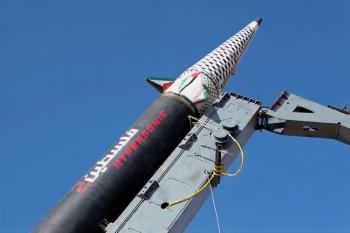Alwaght- Qatar's Defense Minister says his country is ready to defend itself if necessary, as the deadline for demands imposed by Saudi-led Arab states expired on Sunday.
In an interview with Sky News, Khalid al Attiyah said, "I hope we don't come to a stage where a military intervention is made but we always stand ready," adding that, "We are here to defend our country."
He also revealed that Qatar's neighbors are plotting to topple its emir and warned the Saudi-led Arab states that, historically, Qatar had proven it was not an easy country to be "swallowed up".
Asked if he believes neighboring countries are seeking regime change in Qatar, he replied: "This is exactly what has happened. I am not saying hypothetical things.
"In 1996 there was a hard coup attempt. In 2014 there was a soft coup attempt. In 2017 there's been a soft coup attempt".
The deadline came more than two weeks after Saudi Arabia, the United Arab Emirates, Bahrain and Egypt cut diplomatic ties with Qatar on June 5 and imposed sanctions, accusing it of supporting terrorism, allegations that Doha has denied and dismissed them as hypocritical.
Qatar feels ‘stabbed in the back’
The list of demands by the Saudi-led regime includes call on Qatar to end support for the Muslim Brotherhood, the closure of Al Jazeera television network, a downgrade of diplomatic ties with Iran and the shutdown of a Turkish military base in the country.
Qatar on Thursday said the list contained some demands impossible to meet because the underlying accusation was untrue.
During the interview, al Attiyah said the Persian Gulf state felt it had been "stabbed in the back" by friends.
Blockade implies declaration of war
In remarks on Thursday while in Turkey Qatari defense minister has described Saudi-led blockade on his country as a “declaration of war.”
“What can the closure of the land, sea and air borders to harm the citizens and hit the social fabric among the Gulf countries be described as?” he asked in an interview with Al-Araby Al-Jadeed.
“What Qatar is being subjected to is a campaign and siege which is a declaration of war without blood.”
Qatar faces possible further sanctions by the Saudi-led regimes as the deadline to accept their demands expired on Sunday night.
Qatari State news agency QNA reported that Foreign Minister Sheikh Mohammed bin Abdulrahman al-Thani would inform the ruler of Kuwait, an apparently neutral Persian Gulf country seeking to mediate in the spat, of Qatar's response on Monday.
Sheikh Mohammed earlier told reporters in Rome that Doha remained ready to discuss the grievances of its Arab neighbors.
"This list of demands is made to be rejected. It's not meant to be accepted or ... to be negotiated," Sheikh Mohammed said.
"The state of Qatar instead of rejecting it as a principle, we are willing to engage in (dialogue), providing the proper conditions for further dialogue." He added that no one had the right to issue an ultimatum to a sovereign country.
Foreign ministers from Egypt, Saudi Arabia, the United Arab Emirates and Bahrain will meet in Cairo on Wednesday to discuss Qatar
Qatar’s independent policy faces Saudi, Israeli, US opposition
Qatar has over the years pursued a more independent foreign policy unlike many of its neighbors, who tend to ape and follow the Saudi regime.
Doha has said it is ready for talks to end the crisis and Kuwait, which unlike some of its Persian Gulf neighbors has not cut ties, has taken the lead in mediation efforts.
Saudi-led hostility towards Qatar commenced exactly a month after US President Donald Trump visited both Riyadh and Tel Aviv. In view of this, regional pundits believe the Saudi-Israeli-US axis is behind the ongoing push to force Qatar to capitulate.



























